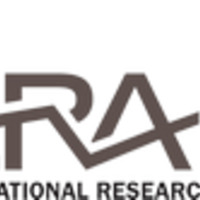-
Title
-
Get Started — Get Better: Using Improvement Cycles to Achieve State Systemic Improvement
-
Abstract/Description
-
OBJECTIVES
The purpose of the poster is to share how state education agencies (SEA) make use of improvement cycles within a Transformation Zone as a way to get started, manage change, get better, and produce more effective and efficient ways to achieve student outcomes.
PERSPECTIVE
Enabling contexts must be developed to support effective, sustained use of skills for the full and effective use of effective innovations. Too often, innovations are changed to fit the system and results remain stagnant. Leaders and Implementation Teams can make use of the Active Implementation Frameworks (Fixsen, Blase, Metz, & Van Dyke, 2015), inclusive of Improvement Cycles, to help create the enabling context and develop the necessary implementation infrastructure so that the system is changed to support the innovation. Active Implementation relies on three different types of Improvement Cycles: Rapid Cycle Problem Solving, Usability Testing, and Practice-Policy Communication Cycles. The basis of all 3 types of cycles is the Plan-Do-Study-Act Cycle (PDSA-Cycle; Deming, 1986). The PDSA - Cycle involves a “trial-and-learning” approach in which the PDSA steps are conducted over iterative cycles designed to discover and solve problems, and eventually leads to achieving high standards while eliminating error. Each type of improvement cycle serves a different function, involves fewer or greater numbers of staff and layers of the system, and can require varying lengths of time.
MODES OF INQUIRY
The SEA makes use of all three improvement cycles within a Transformation Zone to purposefully develop a sustainable, replicable, and effective infrastructure with state education systems. A Transformation Zone represents a vertical slice of the system from the practice level to the policy level (e.g. from the classroom to the Capitol). The slice is small enough to be manageable but large enough to be representative of the system as a whole. Implementation sites within the Transformation Zone serve as the first cohort to participate in the improvement cycles of purposeful change processes to develop and refine the system to support effective implementation and use of innovations.
DATA SOURCES
Practical illustrations and examples from Transformation Zones within six different states will be shared. Data from implementation capacity assessments at state, regional, district, and school levels, fidelity data, and student outcome measures (e.g., math benchmarks assessments, graduation rates) were collected.
RESULTS
Results from the use of implementation capacity assessments across six SEAs demonstrate improvement within 36 months in the use of active implementation framework practices including use of improvement cycles as intended to produce sustainable change. Results from two state education agencies’ transformation zone methodology to produce not only system change but impact in student outcomes as measured by graduation rates and academic benchmarks in mathematics will be highlighted.
SIGNIFICANCE
State capacity development is informed by the Active Implementation Frameworks that provide a guide for action, methods to defragment and integrate system units, and a focus for improved system functioning. While the data presented here provide a basis for optimism, it is likely that current methods to develop capacity in SEAs will continue to evolve and improve.
-
IRE Approach/Concept
-
Transformation Zone
-
Active Implementation Frameworks
-
Improvement Cycle
-
Rapid Cycle Problem Solving
-
Usability Testing
-
Practice Policy Communication Cycle
-
Plan Do Study Act (PDSA) Cycle
-
Open access/full-text available
-
en
Yes
-
Peer reviewed
-
en
Yes
-
Citation
-
Ward, C. S. (2019). Get Started — Get Better: Using Improvement Cycles to Achieve State Systemic Improvement. AERA Annual Meeting, Toronto, ON.

